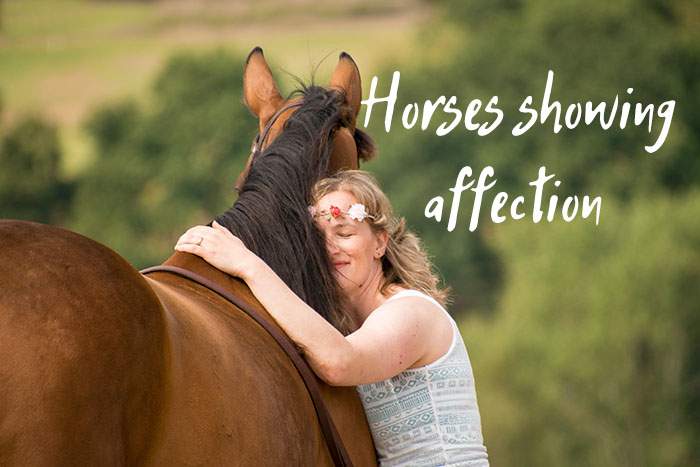Horses, known for their strength and grace, are also deeply emotional animals capable of forming strong connections with their human companions. Understanding how horses show affection can deepen the bond you share with them. By learning to recognize their behaviors and body language, you can create a more meaningful, trusting relationship. Here are some ways horses express their affection:
- How Do You Know If a Horse Likes You?
- Unlock the Secrets: How to Show Affection to a Horse and Deepen Your Bond
Contents
- 1 Nuzzling: A Gentle Gesture of Trust https://hearttohorses.com/
- 2 Grooming: Reciprocating the Care
- 3 Following: A Sign of Companionship
- 4 Sharing Space: Comfort in Your Presence
- 5 Nickering: The Sound of Affection
- 6 Eye and Ear Expressions: Reading Silent Signals
- 7 Sighing and Breathing: A Relaxed Companion
- 8 Learning How to Receive and Give Affection Properly
- 9 Stay Informed: The Latest Information
- 10 Conclusion
Nuzzling: A Gentle Gesture of Trust https://hearttohorses.com/
Nuzzling is a common way horses show affection. This involves a horse gently pressing its nose against you or nibbling softly on your clothes. It’s similar to a human hug or a tender touch and signals a trustful bond. It’s important not to confuse this behavior with a horse seeking treats. When a nuzzle is accompanied by relaxed body language and soft eyes, it is a true sign of affection.
Grooming: Reciprocating the Care
In the wild, horses engage in mutual grooming, known as allogrooming, as a way of bonding and showing trust. When your horse attempts to groom you, nibbling at your hair or clothes, they are demonstrating this same behavior. Reciprocating this grooming, whether by brushing or simply returning their care, helps strengthen your relationship and ensures your horse feels secure and loved.
Following: A Sign of Companionship
When a horse follows you around without the incentive of food or direction, it shows a deep level of attachment. This voluntary companionship is a clear indicator that the horse sees you as a trusted member of their herd and values your presence.
Sharing Space: Comfort in Your Presence
Horses are very particular about their personal space, and only those they trust are allowed into it. If a horse stands close to you, remains calm, or even falls asleep near you, it is a sign that they feel safe and comfortable with you. This shared space is a clear expression of affection and trust.
Nickering: The Sound of Affection
A soft vocalization known as a “nicker” is another affectionate sound horses make when greeting someone they care about. This gentle sound signals recognition and affection, much like a warm greeting. The pitch and tone of the nicker may vary, but a welcoming nicker is always a sign of love and attachment.
Eye and Ear Expressions: Reading Silent Signals
Horses communicate a lot through their eyes and ears. Relaxed, half-closed eyes and forward-facing ears are indicators that a horse is at ease and enjoys your company. These non-verbal cues tell you that the horse feels content and is expressing affection in a quiet but powerful way.
Sighing and Breathing: A Relaxed Companion
When a horse breathes out a deep sigh or stands close with relaxed breathing, it signifies comfort and affection. It shows the horse feels at ease with you and is enjoying the moment together. This calm, relaxed state is an important sign of a horse’s emotional well-being and their attachment to you.
Learning How to Receive and Give Affection Properly
To nurture your relationship with your horse, it’s important to understand their affectionate behaviors and respond accordingly. Pay attention to their body language and reactions, as every horse is unique. Some may enjoy more physical affection, while others might prefer a gentler approach. By learning to interpret their cues and respecting their space, you can strengthen your bond and make your relationship with your horse even more meaningful.
Stay Informed: The Latest Information
Equine behavior is an ever-evolving field, and staying updated on the latest research can offer valuable insights into how horses show affection and bond with humans. Understanding these new findings can deepen the connection between you and your horse, ensuring a relationship based on respect and mutual affection.
Conclusion
Recognizing how horses show affection is key to building a lasting and meaningful bond. By observing their behaviors, reciprocating their gestures, and continuing to learn about equine emotional intelligence, you can unlock the secrets to their hearts. This understanding will solidify the human-horse relationship for a lifetime, based on love, trust, and respect.

